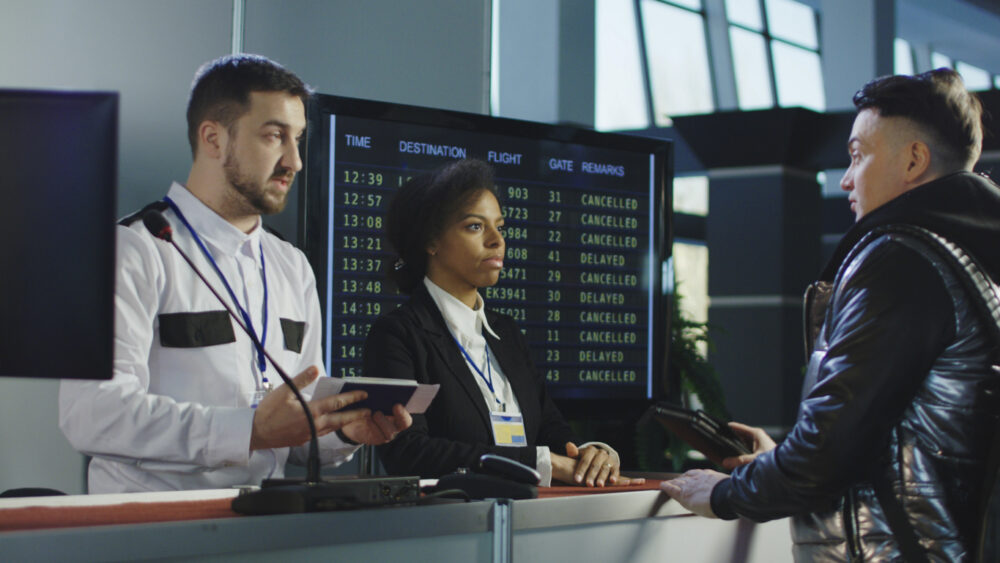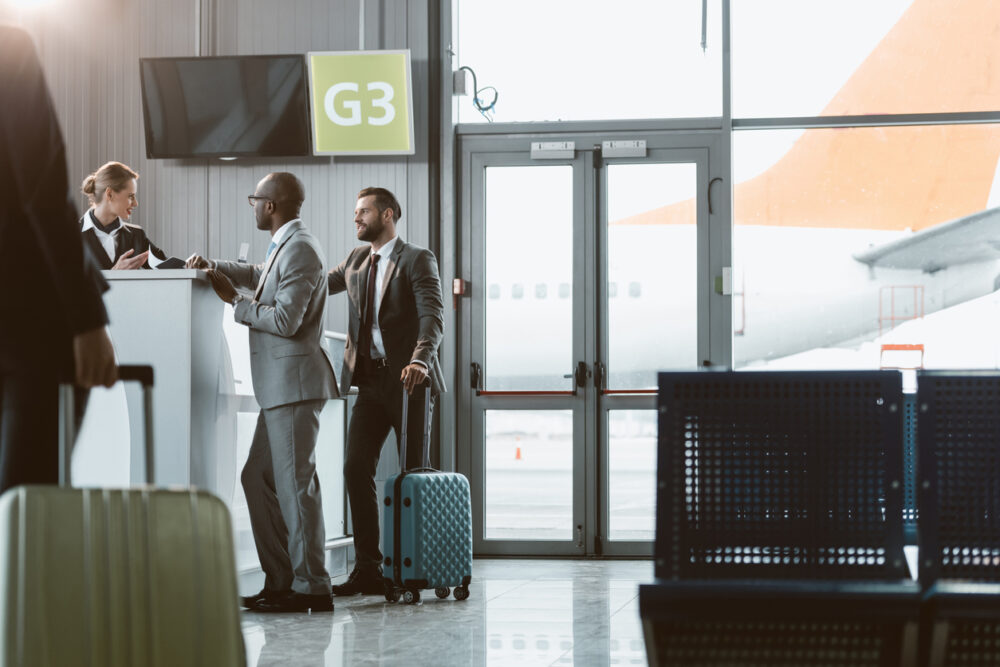A flight delay can become a travel payday if you play your cards right.

That dreaded gate announcement asking for volunteers on an overbooked flight often sends a wave of groans through the waiting area. For most travelers, it’s an inconvenience, but for the savvy passenger, it’s a golden opportunity. Airlines oversell flights as a standard practice, betting that a certain number of people won’t show up. When they guess wrong, they need to pay.
Turning this situation to your advantage requires a mix of flexibility, knowledge, and a little bit of nerve. Knowing what you’re entitled to and what to ask for can make all the difference, transforming a hassle into a handsome reward.
1. Be flexible, but know your bottom line.

The opportunity to get bumped only works if your travel plans have some wiggle room. If you have a connecting flight, a wedding to attend, or a crucial meeting, this isn’t the time to volunteer. Before you even approach the gate agent, take a quick look at the flight schedule. See when the next available flight to your destination is and decide if that arrival time is acceptable for you.
Having this information in your back pocket is your primary source of power. It allows you to confidently approach the negotiation knowing exactly what you’re giving up. Being prepared to walk away if the offer isn’t good enough is essential, as per Allianz Travel Insurance. This strategy is only for those who can genuinely afford a delay, so a quick personal assessment is the critical first step.
2. Know the rules for being forced off the flight.

Understanding your rights for involuntary bumping is your secret weapon when voluntarily giving up your seat. According to the Department of Transportation, if an airline forces you off a flight, you are entitled to cash compensation of up to 400% of your one-way fare, with a current cap of $1,550, depending on the length of the delay. This is the airline’s worst-case scenario.
Knowing this number sets the floor for your negotiation. An airline would much rather give a volunteer a generous travel voucher or $800 in cash than be forced to pay someone $1,550 for an involuntary denial of boarding, according to 10xTravel. You can use this knowledge to politely decline lowball offers, aware that the airline has a strong financial incentive to make you a better deal.
3. Do not accept the first offer.

When the gate agent first announces they are looking for volunteers, they will almost always start with a low offer, often a travel voucher worth just a few hundred dollars. You will see a few eager or inexperienced travelers jump at this, but you should stay seated. This is just the opening bid in what is essentially an auction for your seat. Patience is your most valuable asset in this situation.
As the departure time gets closer and the airline gets more desperate to avoid a costly involuntary bumping scenario, the offer will steadily increase, The New York Times reported. The agent will raise the voucher amount or may start offering cash. By waiting until the offer becomes more substantial, you put yourself in a much stronger position to get the compensation your flexibility is truly worth.
4. Ask for more than just a travel voucher.

The airline wants to give you a travel voucher because it keeps money in their ecosystem and comes with restrictions. Your goal should be to get a well-rounded compensation package. Don’t be shy about asking for specific perks beyond the main payment. This can include meal vouchers to use at the airport, a hotel room if the delay is overnight, and even taxi fare to and from the hotel.
You can also use this as an opportunity to ask for a better seat on your new flight. Requesting a confirmed upgrade to first class or an extra-legroom economy seat is a reasonable ask, especially if you are saving the airline a significant amount of hassle. These small additions can dramatically improve the value of your compensation.
5. Always push for cash or a check.

An airline voucher is not the same as cash. Vouchers often come with frustrating restrictions, such as blackout dates, short expiration periods, and rules that prevent you from using them on partner airlines or for taxes and fees. Cash, on the other hand, is king. It has no restrictions and can be used for anything you want, including booking a flight on a competing airline.
When negotiating, always state your preference for cash or a check. If the airline agent is insistent on a voucher, use that as a point of leverage. You can politely explain that a $600 voucher is not as valuable to you as $600 in cash and that you would need a higher voucher amount to make it worthwhile.
6. Get your new flight details confirmed before giving up your seat.

The most critical part of any voluntary bumping agreement is securing a confirmed seat on the next available flight. A standby ticket is not good enough, as you could get stuck at the airport for hours or even days if subsequent flights are also full. Before you formally surrender your boarding pass, make sure the gate agent provides you with a new, confirmed booking.
Ask the agent to show you the new reservation on their screen and request a printed copy of the new itinerary. This piece of paper is your proof that you have a guaranteed seat. Do not walk away from the podium without this confirmation in hand, as verbal promises can easily be forgotten in a busy airport environment.
7. Huddle with other volunteers to increase your leverage.

If you notice other passengers are also considering volunteering their seats, try to have a quick, quiet conversation with them. By forming a small group, you can collectively hold out for a better offer. If the airline needs four volunteers and all four of you agree to wait until the offer hits $1,000 in cash, you have significantly more bargaining power than you would alone.
This strategy requires a bit of coordination but can be highly effective. The gate agent will be more likely to meet the demands of a group that can solve their entire problem at once. Just be sure to approach the negotiation politely and as a unified front, letting one person speak for the group to avoid confusion.
